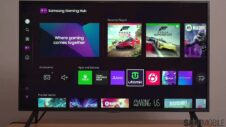Any sensible individual will tell you that for a mobile OS to work in today's market, it needs to have all the major apps that are present on popular operating systems like Android or iOS. Given Android's open nature, OS like BlackBerry and Sailfish decided to take the easy route and simply add support for Android apps, instantly giving them a huge number of apps right from the get go. Samsung, obviously banking on its market presence, didn't think it needed to add Android app support to Tizen, but according to a new report, the company could be having second thoughts about that decision.
According to rumors, Samsung is currently talking to two companies in order to create a virtual machine that would run Java-based Android apps on Tizen. Apparently, Samsung is thinking of doing this temporarily, so that it can allow developers to create native apps for Tizen while allowing consumers access to the popular apps that they may be looking for after moving over from another OS. Of course, this does pose a scenario where users would face a different experience when shifting from an Android app to a native version of the same app, but it would still be a good move and give Tizen the app count it needs to make a dent in the competitive smartphone market.
Of course, these are all rumors, so nothing is official until it comes from the horse's mouth. Samsung has said that Tizen is aimed at devices with as low as 256MB RAM, but that would be a problem if it decides to build in Android apps support (as a virtual machine demands extra memory, the reason why all BlackBerry 10 devices come with at least 1.5GB of RAM), so it would be interesting to see how the company handles things if it does bake in support for Android apps.







